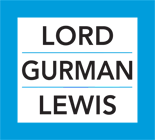An Interview Approach that GOES a Long Way
by Andrew Gurman
Lateral interview performance depends on various factors, including a candidate’s experience, nonverbal communication, interpersonal skills, and verbal presentation. As for the substance of what a candidate says during an interview, focusing on a few key points can help guide responses to interviewers’ questions. Keep in mind the following four items—and the acronym “GOES”—when interviewing:
Genuine:
Present in an honest manner and build credibility. Describe experience in a matter-of-fact way and talk candidly about interest in a position (“I am doing well at my current firm but am interested in this position because I would enjoy focusing my practice in XYZ, an area in which your firm specializes and has an excellent reputation”) rather than offering presumptuous and overblown statements like “I am a perfect fit for this position” or saying you have experience that you do not actually have. This does not mean you have to reveal everything, such as the fact that you are only interested because of the higher compensation or as a stepping stone to an in-house position. And genuineness may be detrimental if it shows desperation, such as gratuitously offering during the interview, “I’ll drop back in class year as much as you would like and if you give me an offer, I would definitely accept immediately.” Finally, if asked about a weakness, showing vulnerability and offering a genuine weakness (and explaining how you have worked to improve) can be better than providing one that is actually a strength. See, e.g., “In a job interview, this is how to acknowledge your weaknesses.” (https://qz.com/1022164/)
Offense:
An interview is a pitch piece; you are effectively seeking business from the employer. Focus on strengths and speak at length about them when appropriate. When asked about work experience, for example, highlight experience that is relevant for the position rather than adding that you have not had particular experience. It is better to say “I have had broad real estate and corporate experience” and then go into further detail describing that experience than saying “I have had broad real estate and corporate experience but have had limited exposure to joint venture agreements and have never led my own deals.” Also, show that you have done research about the employer and the people you are interviewing with, which can be done when answering questions about why you are interested and when asking questions of the interviewer (“I see that your department has done a significant amount of cross-border litigation including ABC and XYZ cases. Given the recent Supreme Court case involving XYZ, do you expect to continue focusing in this space?”) When asked questions that do not allow for offense, such as about lack of particular experience or gaps in employment or why you were asked to leave, provide a brief and complete answer and then stop talking (or if appropriate, take the conversation to a point that is more positive for your candidacy).
Emphasize the key points:
Don’t bury the lead. Interviewers are busy, and their attention may lag if an answer drags on for too long. If an interviewer asks about experience, lead with your most relevant experience for the position. If an interviewer asks why you are interested, open with your core reason and if you have further reasons, order them based on importance. Meandering or disorganized answers on standard interview questions, such as why you are interested or about relevant experience, can suggest a lack of preparedness for the interview and lack of interest in the position. Conducting mock interviews or working with an interview coach can help with focusing your answers and general interview preparedness.
Specific:
Talk about deals/matters in which you have participated with particularity (without, of course, divulging confidential information). When providing an overview of experience, mention the types of matters you have worked on and quantify your contribution if possible and if it bolsters your candidacy. You may want to quantify your win/loss record if worthy of promoting. Here are some examples:
- “I focus about 50% of my time on 10b-5 securities fraud class actions, about 25% on shareholder derivative disputes, and about 25% on a mix of other commercial litigation matters, including breach of contract and partnership disputes. I have taken 20 depositions and defended 15, argued 12 dispositive motions, and second chaired three trials including taking direct testimony of two witnesses and doing the opening and closing arguments at one trial.”
- “I have first chaired seven trials resulting in verdicts in six of those on behalf of my clients.”
- “I focus almost exclusively on M&A work and have led 15 M&A deals, including serving as the point of contact with our clients, negotiating directly with opposing counsel, and preparing purchase agreements.”
If asked to describe one case/matter you have worked on, speak in a detailed manner for a few minutes and ideally pick one in which you have had high levels of substantive responsibility. If you are more junior or have limited experience, show that you can speak intelligently about a legal matter by focusing more on the matter than on your specific experience with it: “This matter involved a dispute between two major conglomerates in which we defended against a claim of tortious interference with contractual relations under Pennsylvania law. I worked on the motion to dismiss in which our client argued XYZ. We had a novel legal theory that ABC, and the judge agreed with our reasoning and granted the motion.”
For a more comprehensive article about interview preparation, please see my partner Jon Lewis’ article “Interview Prep Pointers.”
I hope that your interview GOES smoothly!
